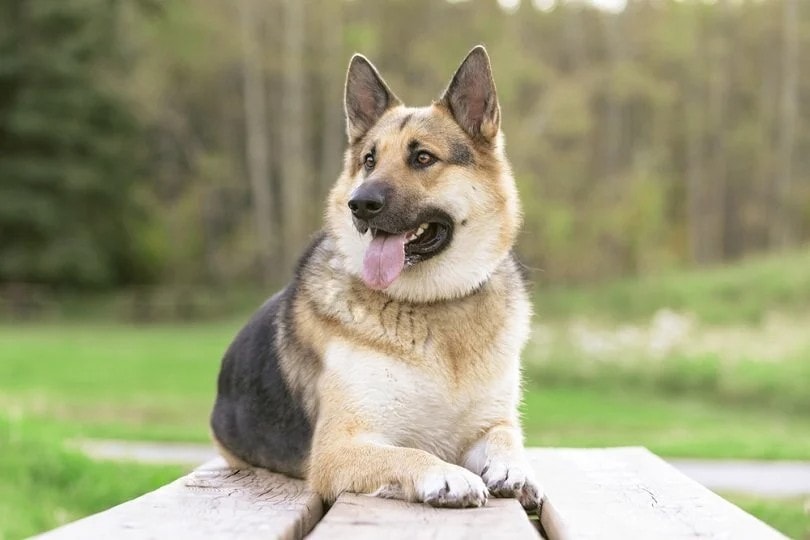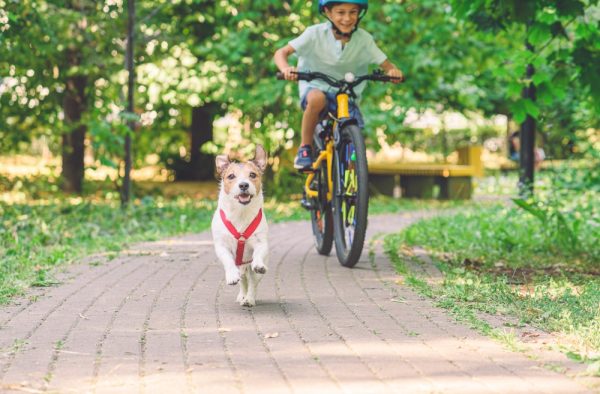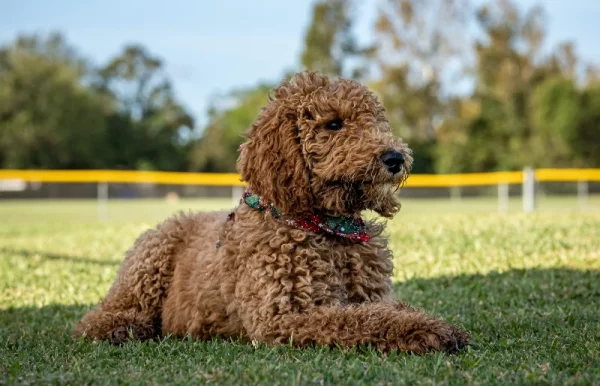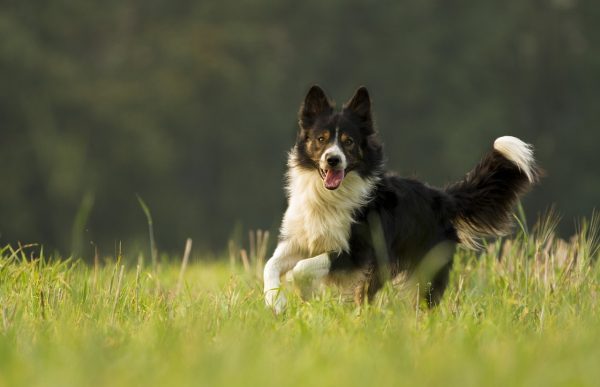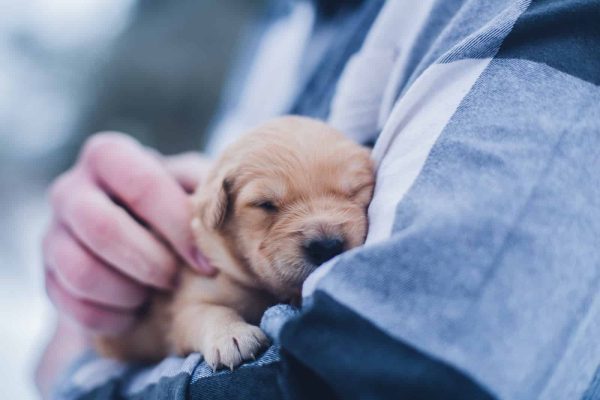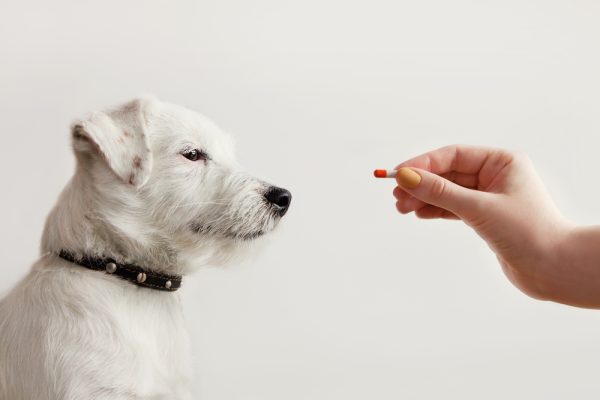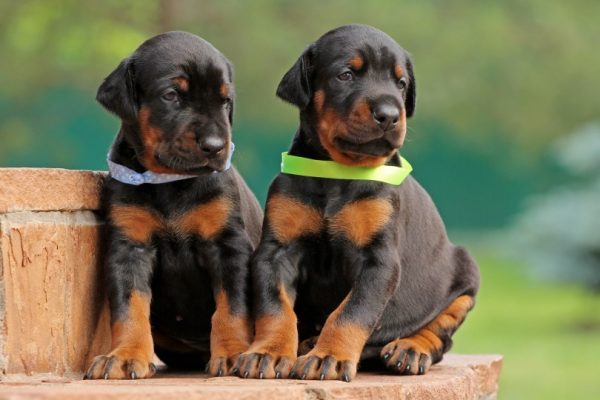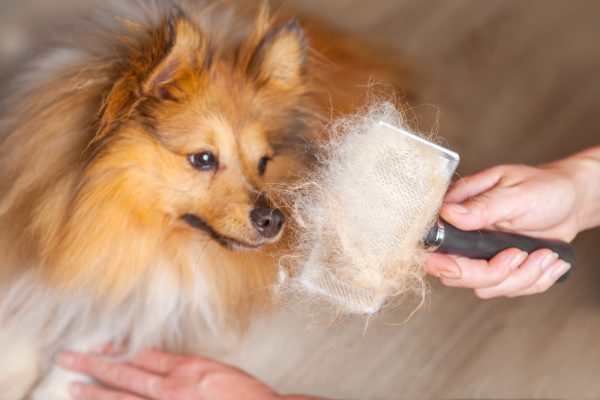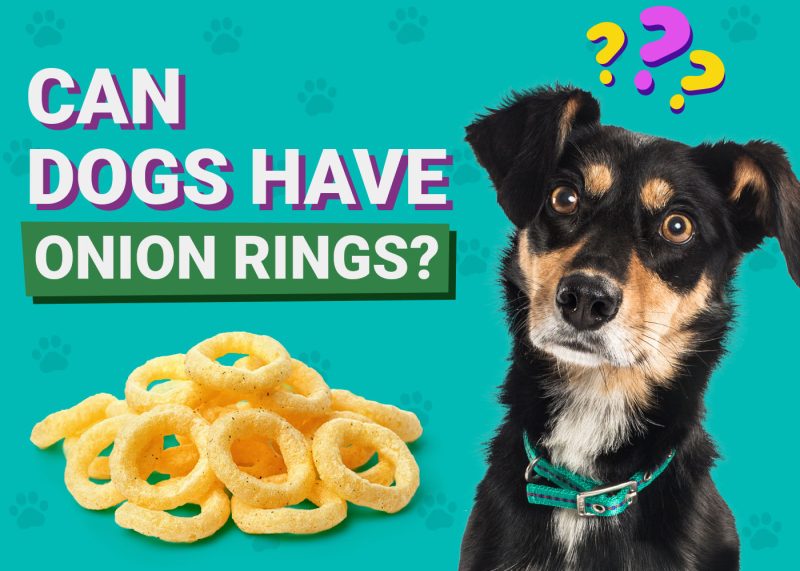In this article
View 3 More +When you bring a puppy home for the first time, you’re smitten with how adorable they are. But did you stop and ask yourself if they will be more than just a cute face? It’s easy to assume that if we get a dog from puppyhood, they will acclimate to our lives and bond with everyone in the family.
That is generally quite true, but it will also greatly depend on the dog’s character, early socialization, consistent training, and previous experiences, with some breeds being more suitable for kids and families than others. This also depends on the family’s lifestyle, which should suit the breed of the dog they choose. Active outdoorsy families should choose a dog breed that is agile and active, such as a sporting group, that can keep up with this pace.
And some breeds may not be as suitable for our kids. Are there exceptions to this generality? Of course! But if you’re on the hunt, you might want to steer clear of what could be anecdotally considered less suitable dog breeds for kids, which we will discuss in the article.
Please note that the suggested list of breeds has been carefully chosen by the author and reviewed by a veterinarian, however, it does not reflect the veterinarian’s professional opinion. If inappropriately trained or poorly socialized, any dog, regardless of breed, can be dangerous for young children, so please exercise caution.

The Importance of Teaching Children Respect
Children are learning all sorts of things for the first time, including interacting with animals. Some kids will be pros at it from the beginning, while others will take some time to learn. That is totally normal and expected—but some dogs might not be so understanding of the process.
A successful pairing between kids and dogs comes from mutual respect. The relationship will organically grow into a lifelong companionship.
- Invade space
- Interfere with mealtime
- Jump, climb, pull, pinch, or hit a dog
- Tease with toys
- Tease with food
- Yell into a dog’s face
- Play with a dog’s food
Even though you might expect more from your pooch, kids can trigger dogs to nip, growl, or viciously bark at a child. It’s usually due to fear and uncertainty, but these moments can hold their share of potential danger.
Supervision and teaching are the ultimate tools to acclimate your pets and children. Once everyone in the home is in harmony, things will go smoother.

The 19 Potentially Unsuitable Dog Breeds for Kids
The dog breeds we are about to discuss are awesome dogs in their own right. But when it comes to having tiny tots running around, these options might not be the best ones to add to your family. Of course, this is not a rule, and there will be plenty of exceptions. Let’s find out who made the list and why.
1. Chihuahua
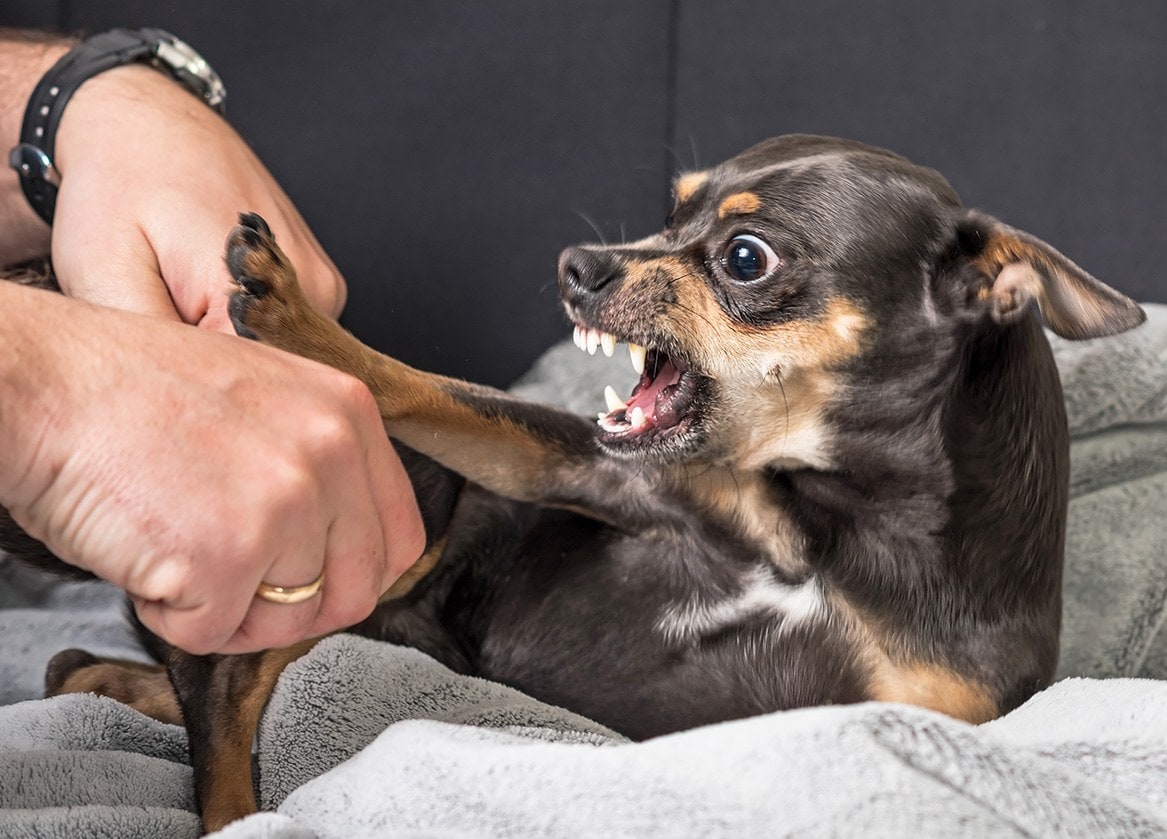
How could such a tiny, adorable dog that looks totally harmless pop up first on the list? A Chihuahua may look like a little, innocent face, but beware—these dogs can pack a punch. They tend to be very bonded to one person, and some don’t seem to be interested in being nice to anyone else.
They are potential bite risks for small children, especially if they feel a child is invading their space. This breed can be very moody, not wanting any disturbing or annoying things happening around them. If they aren’t in the mood for kids, they’ll show it by nipping.
Plus, Chihuahuas are very small and will be very sensitive to rough handling. These fragile dogs need a more relaxed environment—they may do fine with older kids.
- Fragile
- Bossy
- Moody or nippy
2. Akita
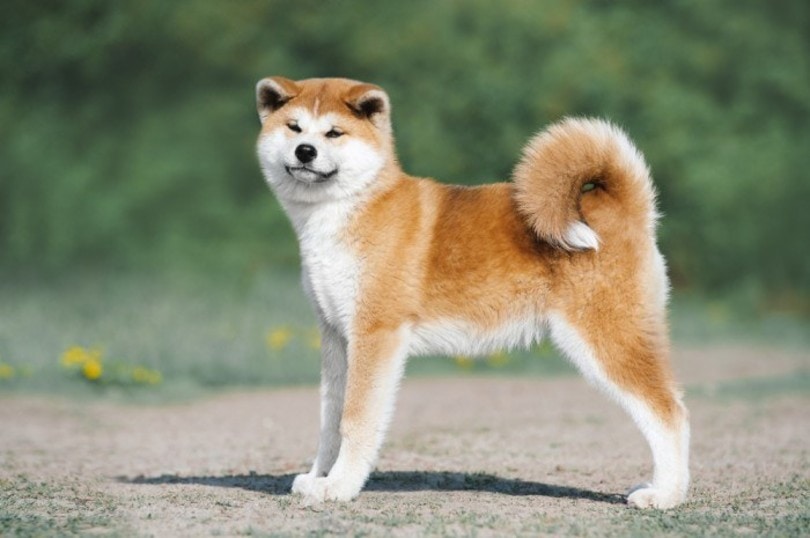
Akitas are fearsome protectors, guarding their families at every turn. They’re always on the lookout, having your back. However, the serious Akita might not make the best playmate for your kids.
Because Akitas are stern and somber, they don’t tolerate silliness or teasing very well. If they think the children are being too erratic, they might not respond appropriately. Also, an Akita might be protective of children in your family but dislike outsiders, which can be dangerous for guests.
Once a child is old enough to fully respect a dog’s boundaries, an Akita might work in your home. Always gauge the situation to see if your child’s personality and the Akita’s all-work-no-play attitude will work.
- Doesn’t like teasing
- Wary of strangers
- Very serious
3. Chow Chow
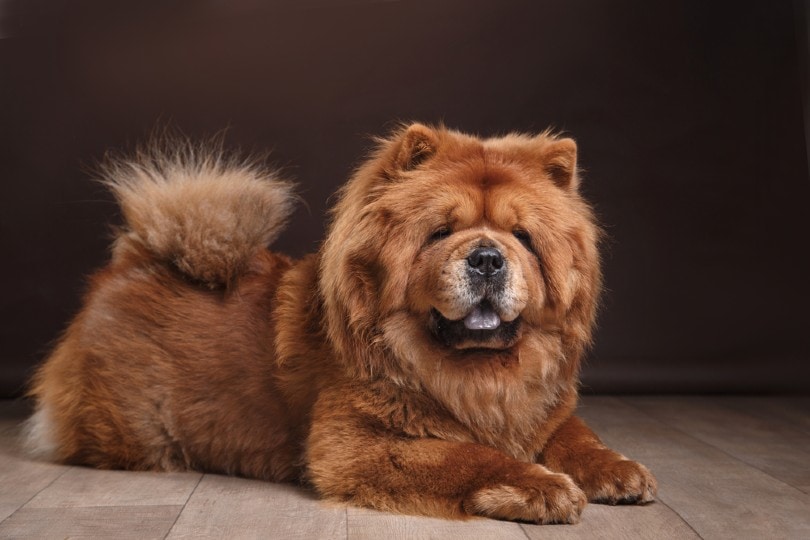
It’s almost irresistible to get past a Chow Chow puppy. These fluffy little bear-like babies will steal your heart with their squinty eyes and wrinkles. But despite how adorable they are, a Chow might not work in a large family with small kids.
The biggest issue with Chows is that they take their loyalty to another level. They do not mesh well with strangers or with other pets. Even with children in the home, some dogs might be very standoffish with them.
Chows don’t like being messed with if they aren’t in the mood, either. If they are lying down napping and a hyper child is bugging them, they may react unfavorably.
- Dislike strangers, even kids
- Standoffish
4. Greyhound
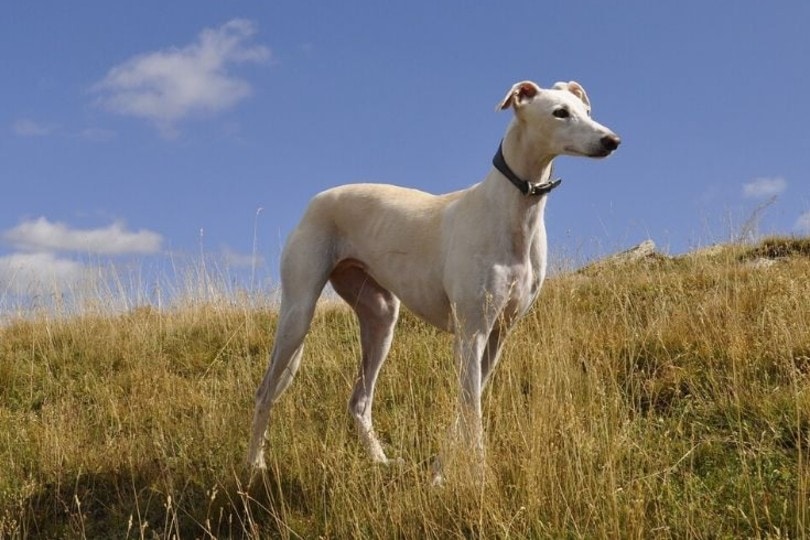
Greyhounds are very pleasant, composed dogs with reserved personalities. These dogs are also one of the fastest runners of the canine kingdom, making them fun yard buddies. While they make tremendous companions for older kids, they might not do so well with little ones.
Greyhounds don’t enjoy chaos or erratic behavior. A small child might startle a Greyhound often, which can lead to nervous tendencies and potential biting. They aren’t aggressive dogs, but do spook easily.
Greyhounds prefer a low-key approach to life, often making them less compatible with noisy households. Any parent can contest that no toddler is quiet.
- Dislike noise
- Prone to nervousness
- Scare easily
5. Mastiff
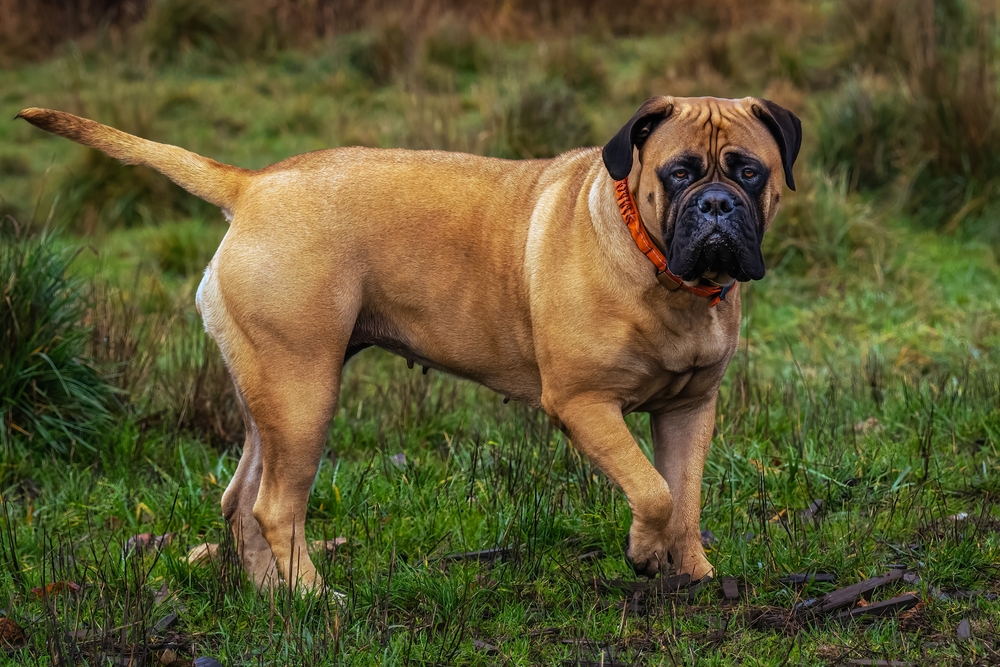
The size of a Mastiff alone can be enough to deter parents from making this selection, but these gentle giants tend to be very doting toward children. These dogs are also protective, and a child can make this instinct stronger. But on the downside, that can be a danger for any potential company.
Mastiffs have wickedly powerful tails. Most tails are face level with your toddler. One good whip and you have a serious injury on your hands—and that’s just their tail! These muscular dogs weigh a ton and can easily hurt your kids without meaning to.
When your kids reach 10 and over, Mastiffs can make charming additions to the family. But you might want to wait until your kids gain some height before you welcome in this big pooch.
- Might knock kids down
- Could accidentally hurt a child due to their size
6. Pekingese
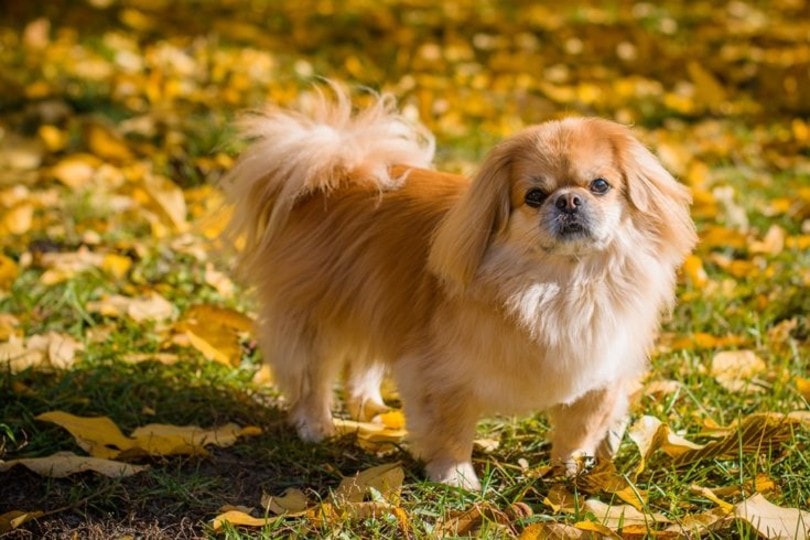
The Pekingese might look cute and cuddly, but don’t let their fluff fool you. These dogs can be quite frisky and particular, so they might not want kids up in their faces. If a child is too invasive, it could result in nipping.
A Pekingese might suffer from little dog syndrome, meaning they don’t have the same view or tolerance of children that some others do. They might view them as a rival or an equal, meaning they can boss them around just as much as the latter.
A Pekingese much prefers a relaxed environment where they can be unbothered by their favorite humans.
- Possible Little Dog Syndrome
- Might nip
- Bossy
7. Rottweiler
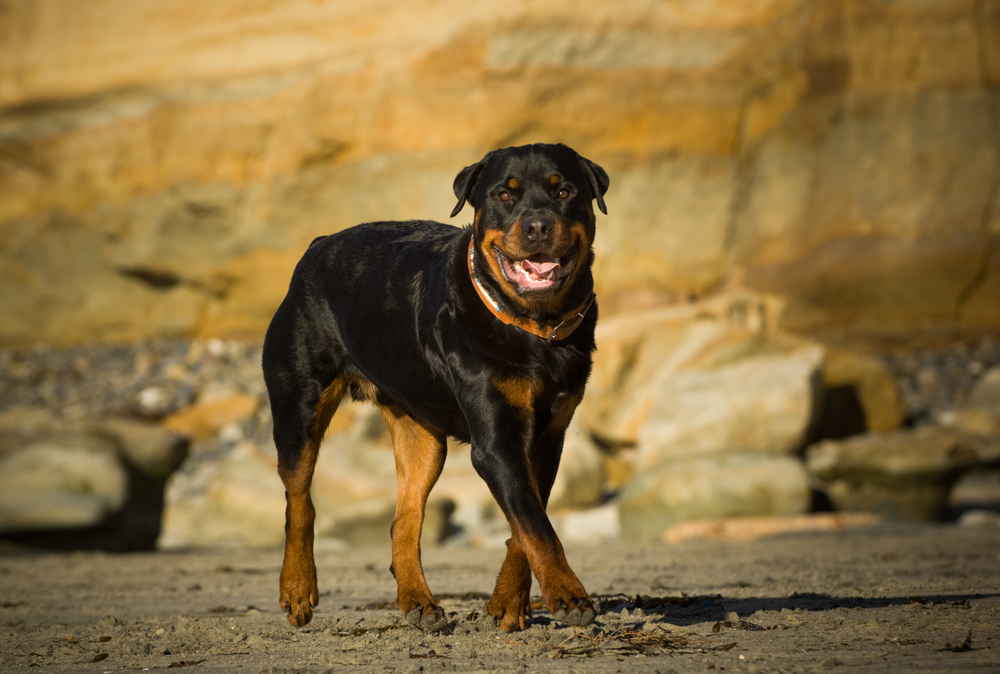
Rottweilers are absolutely excellent family companions and can integrate well into many lifestyles. They have a great tendency to be caretakers of younglings. However, small children might not be the greatest match sometimes.
Some Rottweilers can be very loving and doting, but they are also muscular and thick—and your child might be a tripping hazard. A Rottweiler that isn’t fully trained yet might drag around kids on the leash, too.
Since Rotties are big dogs, they mature slowly—making puppyhood last forever, long before they grow into their own feet. You might have a constant battle of deciding which is worse—your puppy or kids.
- Bite risk in poorly socialized dogs
- Slow to mature
- Bulky and clumsy
8. Malinois
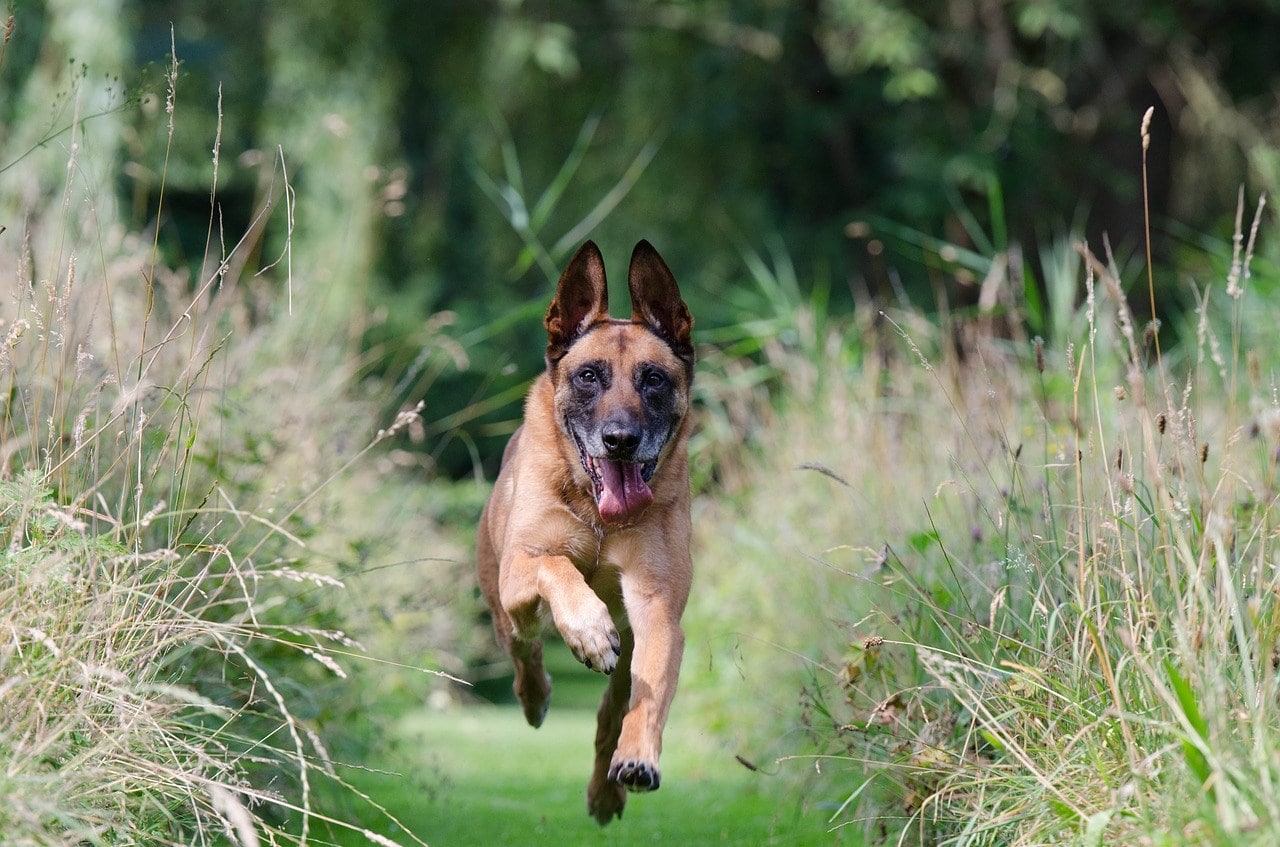
Malinois are bred for pure work and take their duties very seriously. They can make more efficient guard and watchdogs. But owning a Malinois can be comparable to having a child itself due to the keen intelligence and energy level of the breed.
Having a growing Malinois and children at the same time can be a stressful thing since both parties require extensive work. Prepare for a house full of chaos when the pairs collaborate. Malinois can be heavy chewers if they are not properly and sufficiently exercised and mentally stimulated, and they can quickly destroy or eat your kid’s toys.
Malinois who are on the serious side might not want any part of small kid shenanigans. You might have to wait for this breed until the kids are in the middle school age range. If for any reason your Malinois nips your child, their powerful jaws can harm your child tremendously.
- High energy
- High maintenance
9. Shar Pei
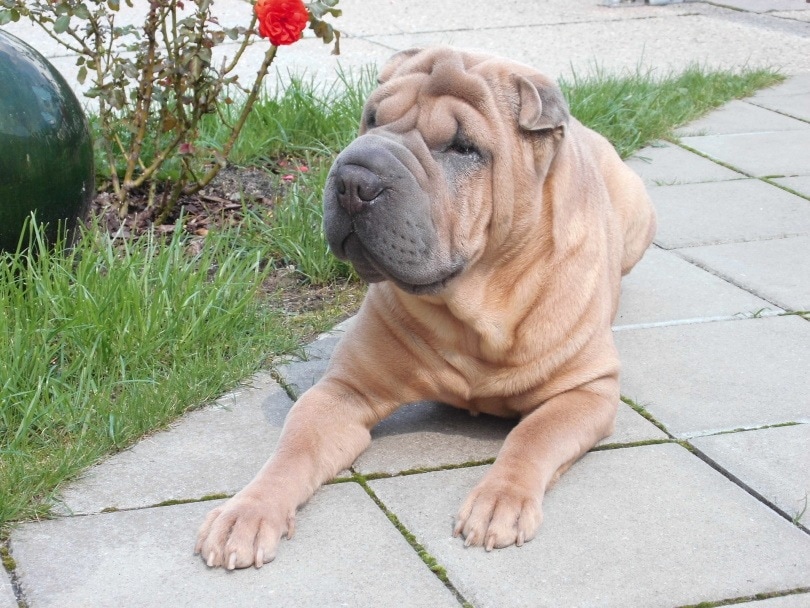
Despite their squeezable wrinkles and heart-warming expressions, some Shar Peis are rather grumpy and particular—if you ask their owners. Because of their watchful temperament, they may not be the best dogs to have with small children.
In fact, some Shar Peis may be territorial and not get along with other pets. They might also only take to one owner in the home.
Shar Peis work best in a single-pet household that is peaceful and stranger-free, but a lot of it also depends on early socialization, individual temperament, training, and previous experiences.
- Watchful
- Moderately suspicious of strangers
- Not always good with other pets
10. American Pit Bull Terrier
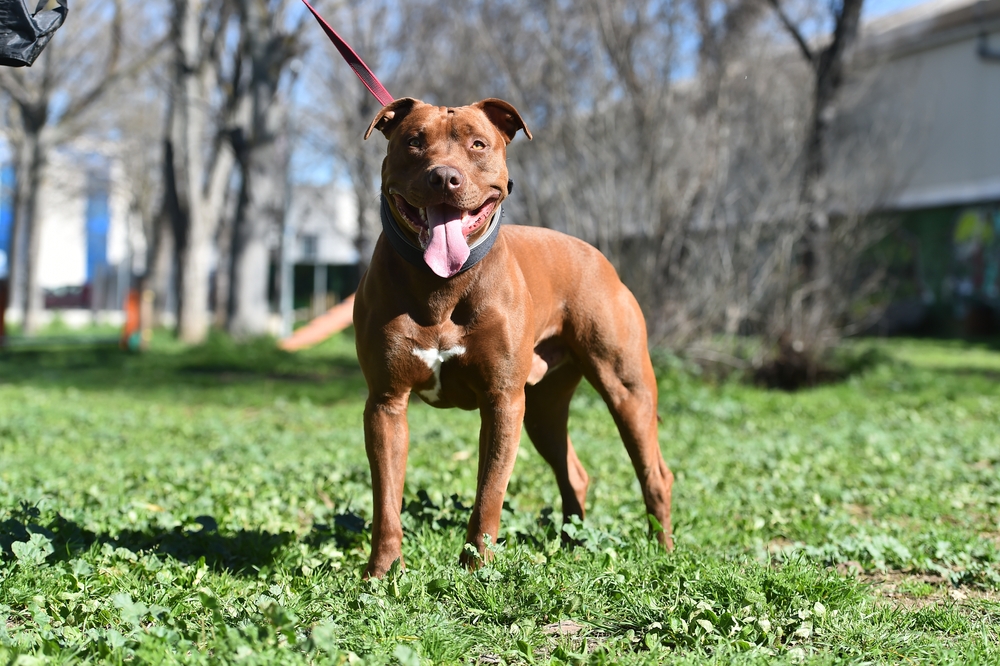
Pit Bulls have had roles in blood sports throughout history, which are now banned across the civilized world. However, younger Pits are full of overflowing energy, which can be a lot to handle. These meaty brutes don’t know their sizes, leading to accidents and falls when they’re around small children.
Pit Bulls can be very territorial, too. They aren’t crazy about newcomers sometimes and often don’t get along with other dogs, depending on their socialization and training. Because of their historical traits, they are also often incompatible with smaller animals, like cats—unless they are very well-socialized.
If your children have multiple pets, this might not be the best dog to have in the home.
- May be unpredictable
- Often standoffish with other pets
- Don’t know their size
11. Alaskan Malamute
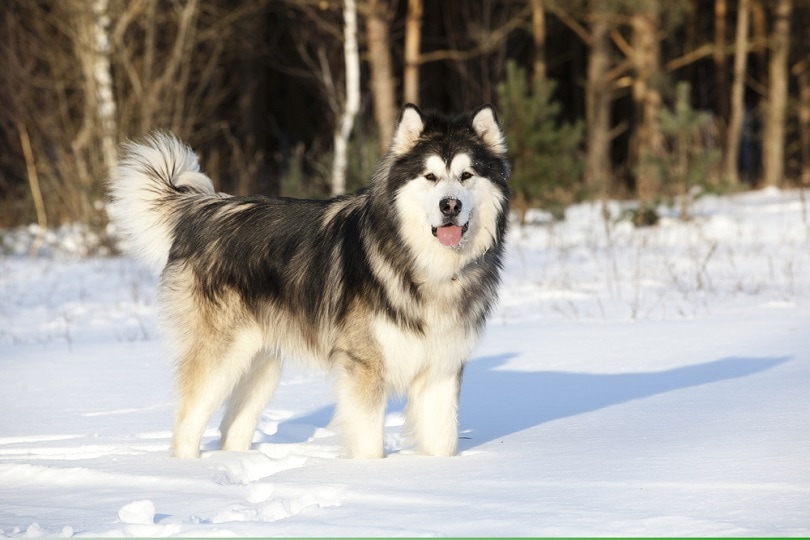
Alaskan Malamutes are large sled dogs built for the snow. While they look similar to their Husky and wolf cousins, they are a breed all their own. These dogs can be extremely dignified, outgoing, and affectionate with their family members, but being around small kids has a few potential concerns.
Malamutes are very peppy, energetic, and big. They can easily knock children over or play too roughly with them. They might also not recognize when they are being too much, which will require attentive training.
Some Malamutes are known to be more reserved and unaccepting of change, which might be tricky if you’re thinking about adopting an adult. Though a Malamute makes a splendid family addition, you should wait until children are a bit older before bringing one home.
- High energy
- Requires extensive training
- Unaccepting in new situations
12. Dachshund
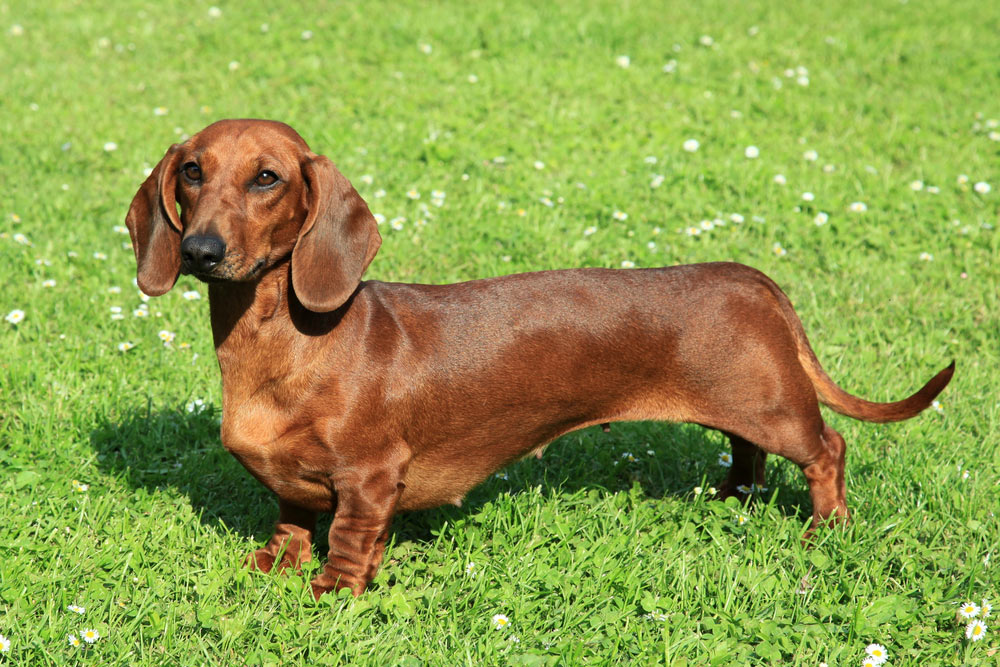
A Dachshund’s looks really don’t prepare you for what little spitfires they can be. Dachshunds enjoy being the boss, and they prefer no competition. Kids and Dachshunds might not see eye to eye when it comes to who deserves your attention.
Dachshunds have been known to nip at kids if they haven’t been properly socialized. That rule doesn’t apply to all Dachshunds, but it’s common enough to be noteworthy. Dachshunds might love to romp around and play, but when play becomes too much, they can flip a switch of disapproval quickly.
Dachshunds also have very long spines, which can predispose them to back injuries—especially if they get hurt in their younger years. If small children want to handle them a lot, it might cause accidental injury to the dog.
- Frisky and moody
- Prone to spine injury
13. Doberman Pinscher
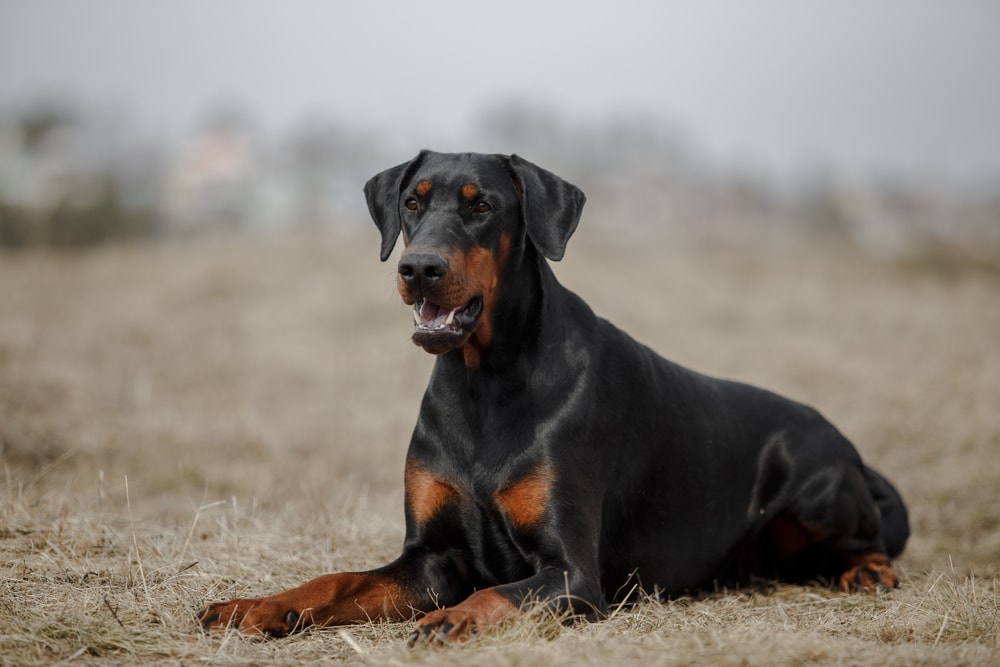
Doberman Pinschers are excellent protectors that put family first. They are generally very protective of children, so they might seem like a suitable pick. However, Dobermans are very large dogs who are slow to mature mentally but get big fast.
They don’t understand just how big they are. That might be okay for older children, but little ones will get trampled a lot—especially during puppyhood.
If you adopt an older Doberman who hasn’t been properly socialized, they might feel frightened of younger children, resulting in nipping or biting. If they do bite, Dobermans have intensely powerful jaws, and you don’t want your child on the receiving end.
- Clumsy
- Slow to mature
14. Caucasian Shepherd or Ovcharka Dog
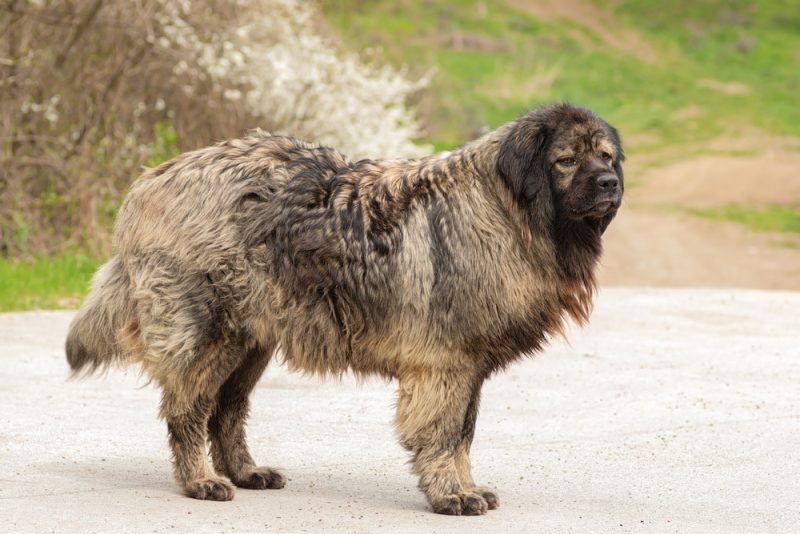
The breathtaking Caucasian Ovcharka is an absolute brute. Resembling a lion, Ovcharkas can weigh up to 170 pounds as adults. Outweighing their owners, sometimes by a landslide, you can imagine how this giant breed mixes with kids. One wag of a tail could send a small child flying.
The only reasonable way it would be a stress-free environment is to get your puppy while your child is well into their teens. If you do, they can grow together and live harmoniously. Since this breed is so mightily dominant, they need consistent training using positive reinforcement and proper socialization around children.
- Massive size
- Dominant attitude
15. Australian Cattle Dog
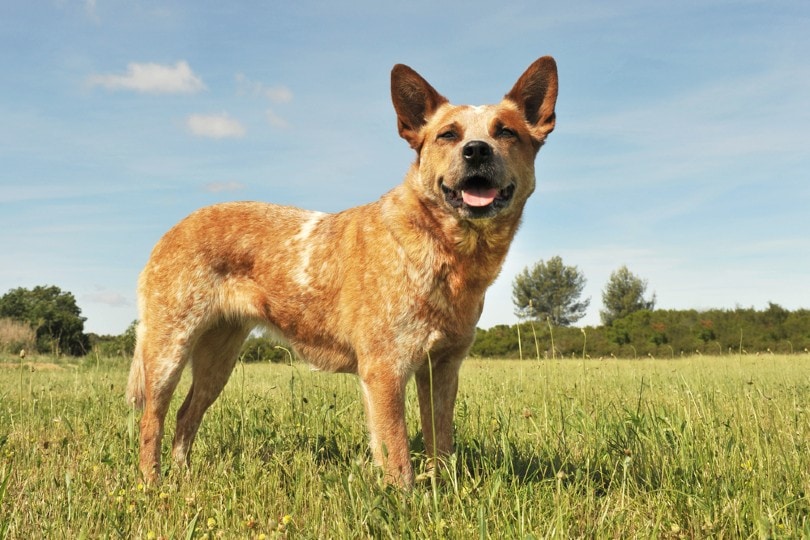
The fascinating Australian Cattle Dog is a loyal and devoted companion. They do very well both outdoors and indoors, needing time in nature to be their happiest. However, there are a few downsides to this breed when it comes to small children.
Cattle Dogs are herding dogs, so they have a natural tendency to nip at the heels. They also aren’t the friendliest with outsiders. So, if you have a lot of company with kids your dog doesn’t know, your cattle dog might try to protect your children against others.
Cattle Dogs can be a little high-strung, and they have an intense prey drive. They may chase cats, squirrels, and other small animals. They might even chase your toddler if the child looks like they’re running away. Because of these instincts, they aren’t the best pick.
- Nipping
- High prey drive
- Not always good with other pets
16. Fila Brasileiro
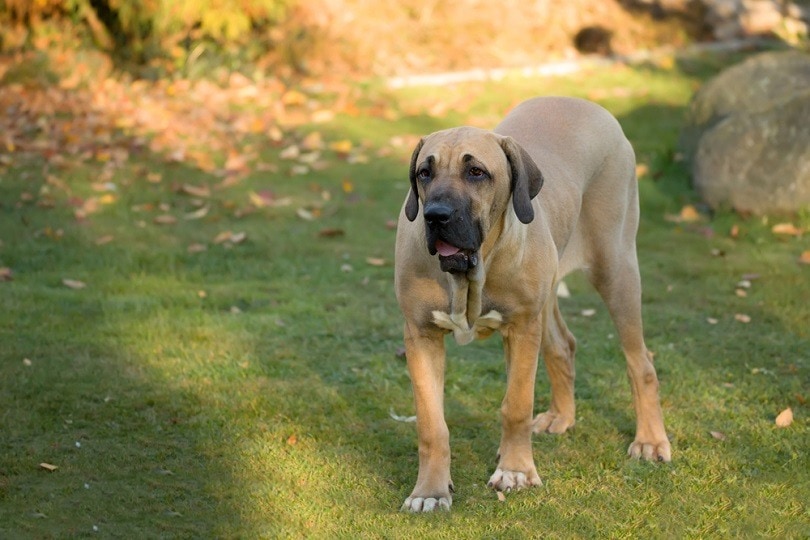
The intense Fila Brasileiro is a physically stunning specimen with a robust body and sturdy stance. They have exquisite tracking potential, being leaders in their field of expertise. However, as a family dog, the Fila might not work so well.
These dogs are very work-savvy and always enjoy having a task to do. While they might care for your children, they are much more concerned with having something to accomplish.
A bored Fila is a recipe for trouble, as they can exhibit undesirable, destructive behaviors and restlessness. They are very competitive and intimidating, making them incompatible with young kids.
- High energy breed
- Bore easily
- Disinterested in kids
17. Dalmatian
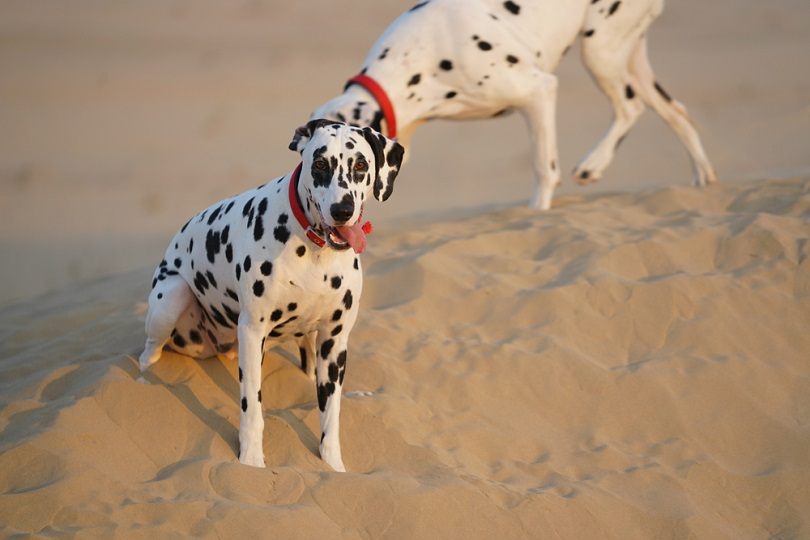
Dalmatians are a real kid favorite, thanks to the adorable Disney movie 101 Dalmatians. Their sweet little spotted coats and friendly expressions don’t help things, either. But when it really comes down to it, Dalmatians don’t match well with small kids.
Many Dalmatians aren’t able to hear because of a genetic defect in the breed. So, being around a toddler or small child might startle them often. Kids can come out of nowhere—and if your Dalmatian isn’t expecting it, it could result in accidental bites.
Young Dalmatian pups can be incredibly hyperactive, which is fun for children. But because they tend to grow quickly, they might start getting too rough during play. Also, Dalmatians aren’t crazy about strangers.
- Deafness might make it easy to startle
- Bite risk
- Young Dalmatians are very hyper
18. German Shepherd
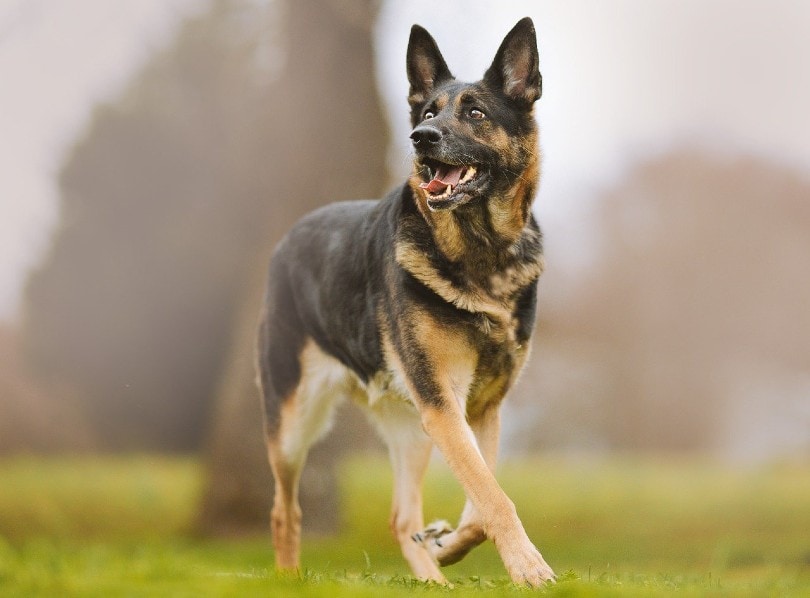
German Shepherds are one of the most popular companions for people today—and for a good reason. These charming dogs are intelligent, devoted, and highly receptive. But even though they are excellent in so many areas of expertise, they might not make the best picks for young kids.
Shepherds do well with children, taking them on as their own family. However, Shepherds are long, lanky, and clumsy. They can easily hurt a child during play without meaning to.
Some dogs may also become territorial with food and toys. If your child gets in the way, it could put them at risk.
- Can be food and toy possessive
- Clumsy
19. Bull Terrier
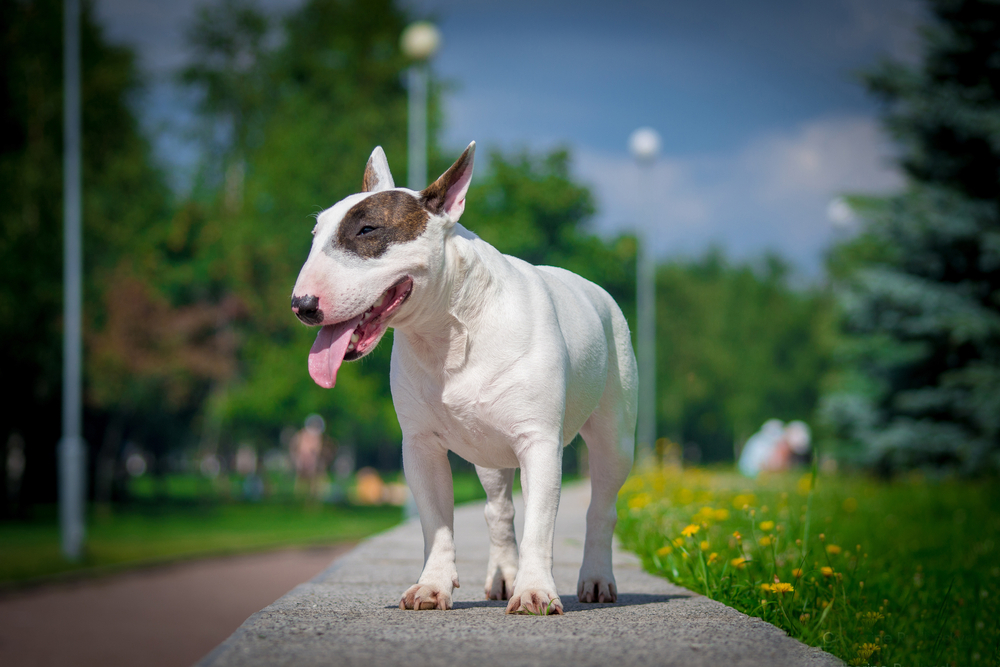
Bull Terriers have a very noticeable breed-specific look. They seem like they would be fantastic companions, combining a sleek appearance with an award-winning personality. Even though they make terrific pets, they might not work best for little ones.
Bull Terriers are playful dogs that can make wonderful companions, but they also can be territorial. They might not take so kindly to teasing or other normal child behavior, viewing it as a challenge. These stubborn dogs look at children as equals so they would do best with teens and adults.
- Stubborn and bossy
- Don’t like teasing
- Bite risk

Other Factors That Determine Temperament
While weeding out what breeds won’t work, you must remember that this varies greatly from dog to dog. You might have an incredibly docile, well-mannered Chihuahua that the kids carry around in toy purses—that is possible.
However, certain breeds are simply prone to certain temperaments with specific characteristics. Each one stands alone. Until you learn about breed specifics, it’s hard to know if you will be compatible with a particular breed.
But just because you opt for a docile breed doesn’t mean other factors don’t contribute to overall temperament. If a kid-friendly breed is hurt or teased by a child, they might develop a loathing for children. Much of what determines a good dog is early socialization and proper training.
Also, dogs must get the right amount of exercise and mental stimulation for their breed. Even laid-back dogs can pick up bad habits when they don’t have proper outlets.

Kid-Positive Breeds to Consider
Even if none of these breeds were recommended for kids, there would be tons of good choices left. Here are some excellent breeds in all sorts of sizes you can research.
| Small/Toy Breeds | Medium-Sized Breeds | Large/Giant Breeds |
| Pug | Golden Retriever | Poodle |
| Havanese | Beagle | Boxer |
| Great Dane | ||
| Newfoundland |

Final Thoughts
Each one of these breeds is fantastic in its own right. They were bred for different reasons, making them skilled and solid in specific traits. Even though some of them might not be the best with small children, they can still offer love and companionship to suitable homes, and some will make an exception to this anecdotal list and fit in well with younger children. Early socialization, positive reinforcement training, individual temperament, and supervision are crucial in ensuring safety for your children.
If you are looking for a family-friendly breed, just make sure to do your research and consult a veterinarian. When you pick out a puppy or adopt from a shelter, make sure that your children, other pets, and you are compatible before committing.
- Related Read: Best Dog Leashes for Large Dogs
Featured Image Credit: Steve Heap, Shutterstock
